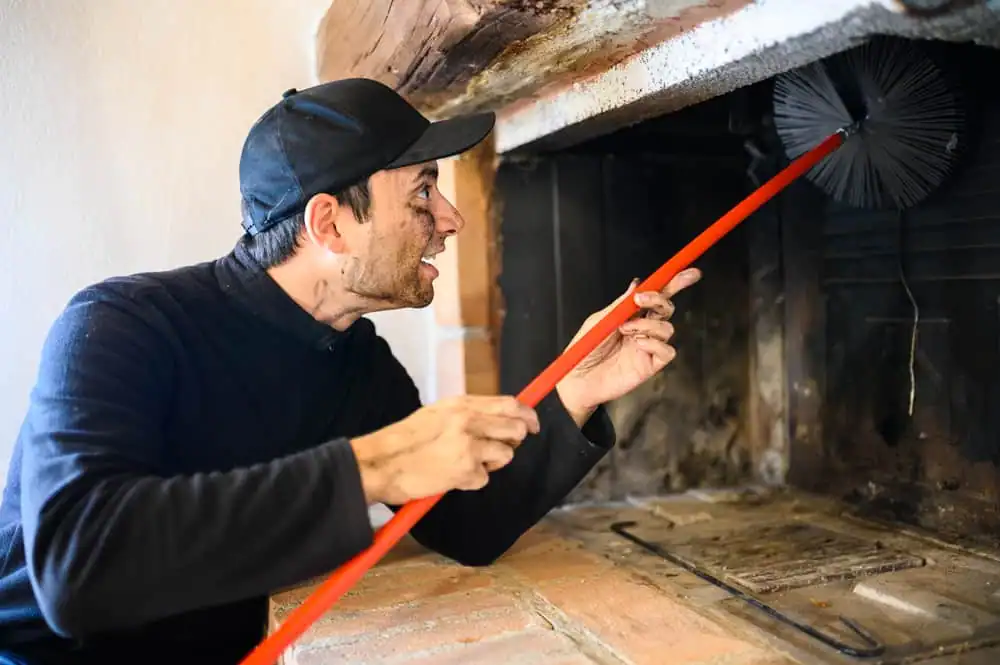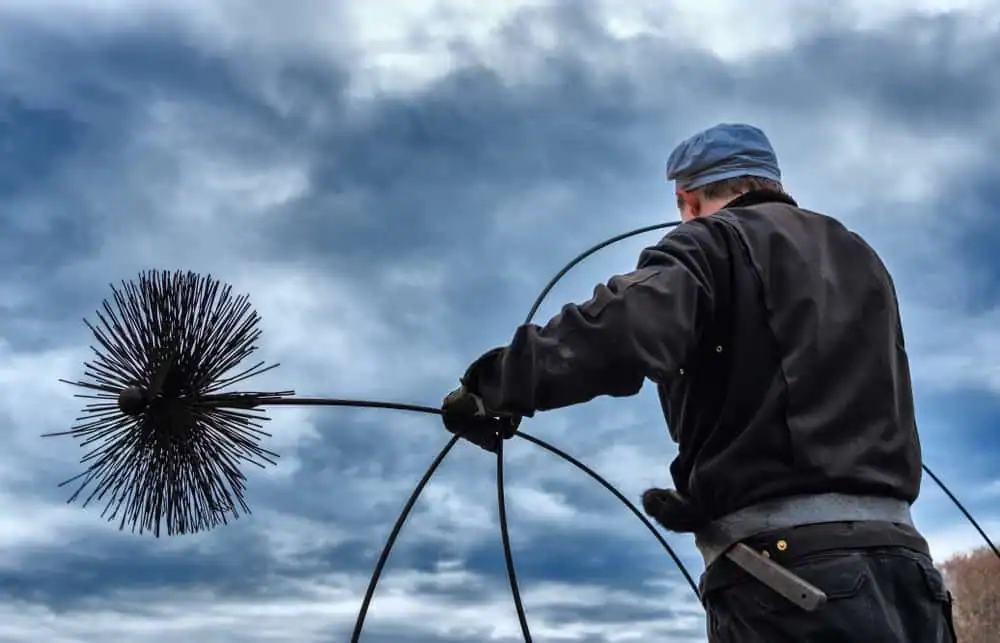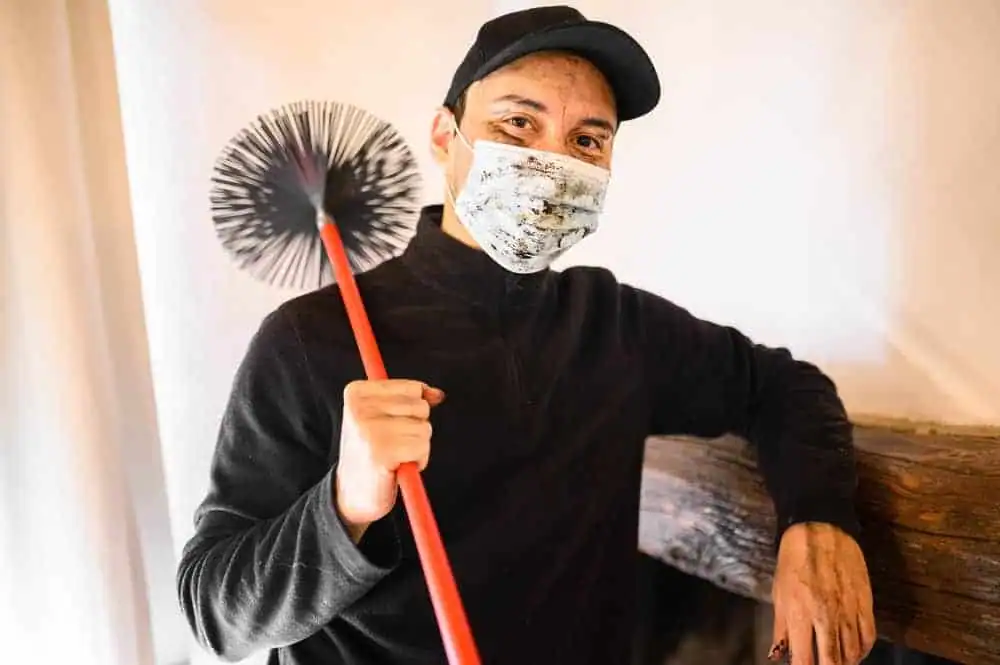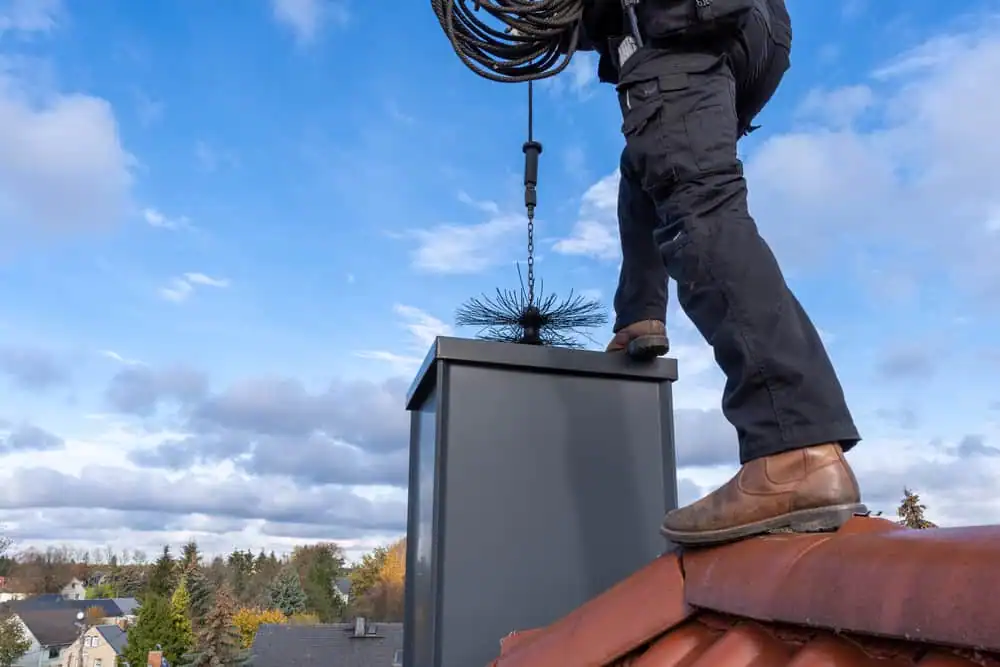Triple-certified chimney sweeping that actually protects your family from dangerous fires and carbon monoxide poisoning in Extonville homes.

Hear from Our Customers

You light a fire and actually enjoy it instead of wondering if tonight’s the night your chimney catches fire. No more stressing about that black buildup you’ve been ignoring or worrying whether your family is breathing dangerous fumes.
Your fireplace works the way it should—drawing smoke up and out, not back into your living room. You get the warmth and ambiance you want without the constant worry about creosote buildup or carbon monoxide.
When neighbors ask who cleaned your chimney, you’ll have a name you’re confident recommending. Because you chose professionals who actually know what they’re doing.
Apex Air Duct Cleaning & Chimney Services has been keeping Extonville families safe for over four decades. We’re the only company in New Jersey with triple certification—CSIA, NFI, and NADCA—meaning we meet the highest standards for chimney safety, fireplace expertise, and air quality.
This isn’t some fly-by-night operation. Thomas Asciolla Sr. is ASCS certified, and our company holds NJ License #13VH08573100. We understand Extonville’s unique mix of historic and modern homes, from century-old masonry chimneys to newer prefab systems.
When you call Apex, you’re getting local professionals who’ve seen it all and know exactly how to handle whatever we find in your chimney.

First, we protect your home. Drop cloths go down, furniture gets covered, and a powerful vacuum system gets set up at the base of your chimney to catch every bit of debris.
Next comes the actual cleaning. Using professional-grade brushes and rods, we scrub away creosote buildup from your flue, smoke chamber, and firebox. This isn’t a quick once-over—we work methodically from top to bottom until everything’s clean.
Finally, we inspect as we go. While cleaning, we’re checking for cracks, damage, or anything else that could compromise your safety. You get a clean chimney and peace of mind knowing a certified professional examined every inch of your system.

Ready to get started?
Your chimney sweeping includes a thorough Level 1 inspection—the kind the NFPA recommends annually. We check for structural issues, proper clearances, and dangerous creosote buildup that could ignite.
In Extonville’s older homes, we pay special attention to masonry deterioration and liner condition. Many homes in Mercer County have chimneys that haven’t been properly maintained, and we know exactly what to look for.
You also get same-day emergency service if needed, because chimney problems don’t wait for convenient times. Plus, we handle the complete job—from initial inspection through cleaning and any necessary repairs—so you’re not coordinating between multiple contractors.

Ready for a Safer, Cleaner Home?
Contact Apex Dryer Vent Cleaning NJ Today
Mon – Fri | 9AM-5PM
Sat | 9AM – 1PM
Sun | Closed